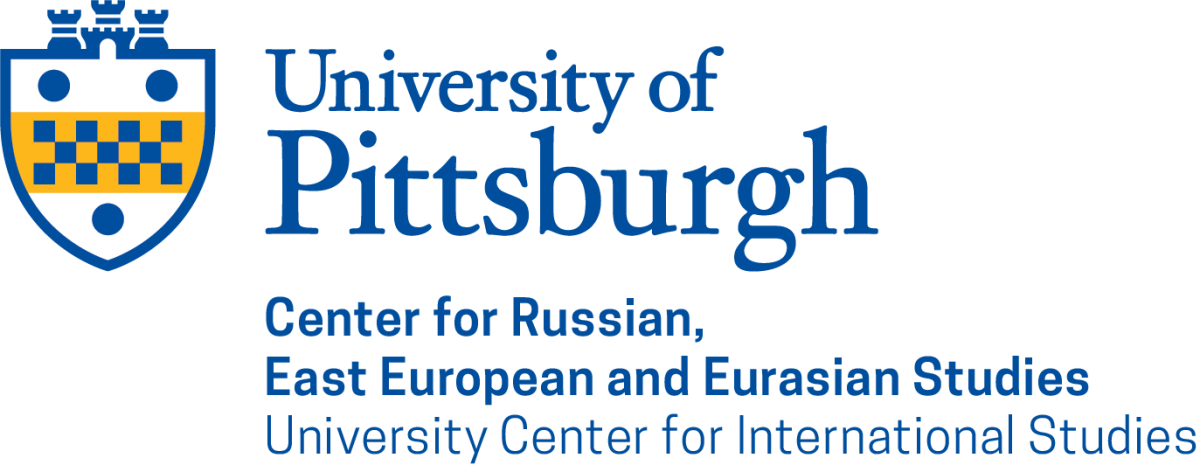From Critical Pedagogies to Research Practice and Public Engagement in Slavic, East European, and Eurasian Studies
Among the first African Americans to join the American Communist Party and an important architect of communist approaches to race, racism, and African American equality, Lovett Fort- Whiteman (1889-1939) was one of the US citizens convinced (naively, to be sure) that Soviet society showed the way for overcoming racism in the United States. While visiting the USSR in 1924, Fort-Whiteman wrote to W.E.B. Du Bois: “There is a perfect spirit of internationalism here.” “Women from the various Circassian republics and Siberia, men from China, Japan, Korea, India, etc. all live as one large family, look upon one another simply as human beings ... Here, life is poetry itself! It is the Bolshevik idea of social relations, and a miniature of the world of tomorrow.”
Communist positions on race and racism have yielded both successes and failures worldwide since 1917. Despite the mixed results, Fort-Whiteman’s words recall the impact that global colonialism has had on the social construction of identity, including in our world region; its legacy on research and teaching in Slavic, East European, and Eurasian Studies (SEEES); and its effect on perpetuating systemic inequities in academia as a whole. To address this legacy, this series is designed to elevate conversations about teaching on race and continued disparities in our field while also bringing research by scholars from underrepresented minorities and/or on communities of color to the center stage.
The series will comprise four segments: two pedagogy webinars; two lighting rounds on the experience of scholars of color in the field; and two roundtables featuring research by scholars from underrepresented minorities and/or on racial minorities, concluding with a forum on the reception of the Black Lives Matter movement in our field.
FALL 2020 SESSIONS
PART I: CRITICAL PEDAGOGIES
OCTOBER 2
2-3:30 pm (ET) | 1-2:30 pm (CT) | 12-1:30 pm (MT) | 11am-12:30 pm (PT)
Teaching About Race and Racism: Your Syllabus 2.0
WATCH
MODERATOR:
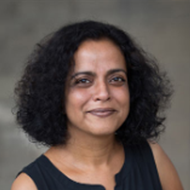
Anindita Banerjee is Associate Professor of Comparative Literature at Cornell University where her research focuses on science fiction and techno-cultural studies, environmental humanities, media studies, and migration studies across Russia, Central Asia, the Indian subcontinent, and Latin America. She is the author of the monograph We Modern People: Science Fiction and the Making of Russian Modernity (Wesleyan University Press, 2013) and is currently completing a second book titled The Chernobyl Effect.
SPEAKERS:
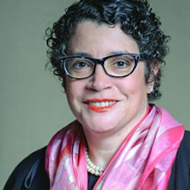
B. Amarilis Lugo de Fabritz is the Master Instructor for Russian at Howard University’s Department of World Languages and Cultures. Dr. Lugo de Fabritz’s research includes work on Russian and East European cinema, Russian literature of the nineteenth and twentieth century, Spanish language, literature and culture, Spanish cinema of the post-Franco era, and Cuban cinema, as well as gender. She completed her doctorate in Slavic Languages and Literatures at the University of Washington, Seattle, Washington.
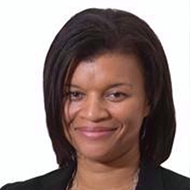
Sunnie Rucker-Chang is Assistant Professor of Slavic and East European Studies and Director of European Studies the University of Cincinnati. She works, writes, and teaches primarily on racial and cultural formations and minority-majority relations in Southeast Europe. In her interdisciplinary work, Dr. Rucker-Chang focuses on Yugoslav and post-Yugoslav history, literature, screen media, coloniality, and post-socialism. She is the co-author of Roma Rights and Civil Rights: A Transatlantic Comparison (Cambridge, 2020) and co-editor of Chinese Migrants in Eastern Europe and Central Asia (Routledge, 2011). She is currently finishing the volume Migrants and Refugees to, from, and in the Balkans: Identity, Alterity, and Culture, which she is co-editing with Yana Hashamova and Oana Popescu. Tentatively titled “Discourses on Blackness in Yugoslavia: Legacies and Dimensions of an Idea,” her new monograph will challenge conventional ideas of race and racialization in the Balkans and will connect the region to broad trends in European Studies.
OCTOBER 9
2-3:30 pm (ET) | 1-2:30 pm (CT) | 12-1:30 pm (MT) | 11am-12:30 pm (PT)
Engaging with Race and Racism in the Classroom
WATCH
MODERATOR:
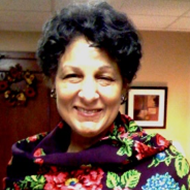
Joy Gleason Carew, PhD., author of Blacks, Reds and Russians: Sojourners in Search of the Soviet Promise (Rutgers U. Press 2008). Dr. Carew has been in academe for nearly 50 years, in institutions as varied as community colleges, major research universities, small liberal arts colleges, and historically black universities. She recently retired from the University of Louisville after 20 years. There, she was the Resident Linguist and Professor of Pan-African Studies. Her specialty has been to look at the experiences and impact of African Diasporan communities. Dr. Carew is also the former Associate Director of the International Center at the University of Louisville. Her most recent publications are posthumous works with her late husband, the writer and Pan-Africanist, Jan Carew. They are an edited collection of poetry by Jan Carew, Return to Streets of Eternity (Smokestack Books (UK)), 2015 and the co-written, Episodes in My Life: the Autobiography of Jan Carew (Peepal Tree Press (UK)), 2015.
SPEAKERS:
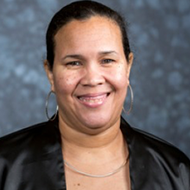
Raquel Greene is an Associate Professor at Grinnell College where she teaches all levels of the Russian language curriculum as well as a course based on her research, "The Theme of the African in Russian Literature and Culture." She is especially well known as a scholar of the interplay of race, ethnicity and culture, and actively publishes in the fields of language pedagogy, Russian literature and culture, and children's literature. She has been active in improving diversity in student recruitment and in the teaching of Russian nationwide.

Chelsi West Ohueri is a cultural anthropologist and an Assistant Professor in the Department of Slavic and Eurasian Studies at the University of Texas at Austin. She is interested in configurations of race and belonging among Albanian, Romani, and Egyptian communities in South-eastern Europe. She also examines categories of whiteness and blackness as they are produced and reproduced throughout Europe and across the globe. West Ohueri is currently completing her ethnographic book project about this research.
PART II: UNCOMFORTABLE CONVERSATIONS
OCTOBER 16
2-3:30 pm (ET) | 1-2:30 pm (CT) | 12-1:30 pm (MT) | 11am-12:30 pm (PT)
Emerging Scholars of Color Abroad
WATCH
MODERATOR:
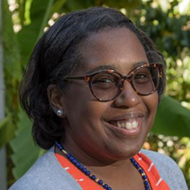 Kimberly St. Julian-Varnon is a Ph.D. student in History and Fontaine Fellow at the University of Pennsylvania. Kimberly's work examines how Black experience in the Soviet Union shaped Black identity, and how the presence of people of color shaped ideas and understandings of race, ethnicity, and nationality policy in the Soviet Union and post-Soviet space. Her recent public writing has appeared in Foreign Policy, Moscow Times, and Contingent Magazine and analyses the linkages of race, foreign policy, and culture in the United States, Russia, and Ukraine.
Kimberly St. Julian-Varnon is a Ph.D. student in History and Fontaine Fellow at the University of Pennsylvania. Kimberly's work examines how Black experience in the Soviet Union shaped Black identity, and how the presence of people of color shaped ideas and understandings of race, ethnicity, and nationality policy in the Soviet Union and post-Soviet space. Her recent public writing has appeared in Foreign Policy, Moscow Times, and Contingent Magazine and analyses the linkages of race, foreign policy, and culture in the United States, Russia, and Ukraine.
SPEAKERS:
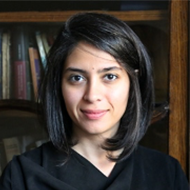
Ioanida Costache is a Ph.D. Candidate in Music at Standford Unversity. Her work has recently been published in Critical Romani Studies, and she is the recipient of a number of fellowships and grants, including the ASEEES Dissertation Research Grant and the Fulbright U.S. Student Program Research Grant to Romania. In her research, Costache examines how music helps facilitate the cultivation and transmission of Romani memories of the Holocaust.
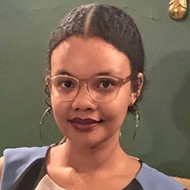
Alicia Hernandez-Strong is currently a second-year Master’s student in European and Russian Studies at Yale University. Her research is anthropological in nature and focuses on modern discourses around race, nationalism and ethnic minorities in Kosovo. She is broadly interested in racial & religious social cleavages in former Yugoslav countries. Before joining Yale University, Strong became the youngest person nationally to be given the title of Executive Director of the Connecticut chapter of the Council on American-Islamic Relations (CAIR), where she worked to educate the general public about Islam.
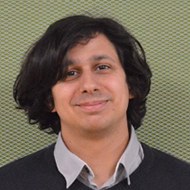 Rafael Pablo Labanino is a Research Fellow at the Department of Politics and Public Administration, University of Konstanz, and at the Department of Biology and Didactics, Ludwigsburg University of Education. He is also a Ph.D Candidate at the Institute of Political Science at the University of Bern. Rafael has recently co-authored the Liberalization Database 1973-2013, the most comprehensive data set on the process of liberalizing economic and social policity reforms in the world to date. He is currently working on the joint German-Polish project, "The Missing Link: Examining Organized Interests in Post-Communist Policy-Making.
Rafael Pablo Labanino is a Research Fellow at the Department of Politics and Public Administration, University of Konstanz, and at the Department of Biology and Didactics, Ludwigsburg University of Education. He is also a Ph.D Candidate at the Institute of Political Science at the University of Bern. Rafael has recently co-authored the Liberalization Database 1973-2013, the most comprehensive data set on the process of liberalizing economic and social policity reforms in the world to date. He is currently working on the joint German-Polish project, "The Missing Link: Examining Organized Interests in Post-Communist Policy-Making.
 Alexa Tignall (they/them) is a Ph.D student in the Anthropology Department at the University of California Berkeley were their research focuses on intersectionality in Central Asia, more specifically in urban and rural Kyrgyzstan. She is interested in racial discourse, Queerness, Blackness, feminism, colonialism and Trans activism in Central Asia and Russia. Alexa was previously the recipient of a Critical Language Scholarship, which allowed them to conduct research in Kyrgyzstan in summer 2019.
Alexa Tignall (they/them) is a Ph.D student in the Anthropology Department at the University of California Berkeley were their research focuses on intersectionality in Central Asia, more specifically in urban and rural Kyrgyzstan. She is interested in racial discourse, Queerness, Blackness, feminism, colonialism and Trans activism in Central Asia and Russia. Alexa was previously the recipient of a Critical Language Scholarship, which allowed them to conduct research in Kyrgyzstan in summer 2019.
OCTOBER 23
2-3:30 pm (ET) | 1-2:30 pm (CT) | 12-1:30 pm (MT) | 11am-12:30 pm (PT)
Moving Beyond Exclusionary Practices in SEEES
WATCH
MODERATOR:
 Choi Chatterjee is Professor of History at California State University, Los Angeles. She is the author of Celebrating Women: Gender, Festival Culture and Bolshevik Ideology, 1910-1939 (University of Pittsburgh Press, 2002) and the co-author of Russia in the Long Twentieth Century (Routledge, 2016) and The Twentieth Century: A Retrospective (Perseus, 2002). Her latest book, Russia in World History: A Transnational Approach, will be published by Bloomsbury Academic Press in 2021.
Choi Chatterjee is Professor of History at California State University, Los Angeles. She is the author of Celebrating Women: Gender, Festival Culture and Bolshevik Ideology, 1910-1939 (University of Pittsburgh Press, 2002) and the co-author of Russia in the Long Twentieth Century (Routledge, 2016) and The Twentieth Century: A Retrospective (Perseus, 2002). Her latest book, Russia in World History: A Transnational Approach, will be published by Bloomsbury Academic Press in 2021.
SPEAKERS:
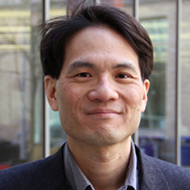 Morgan Liu is Associate Professor at Ohio State University and currently serves as President of the Central Eurasian Studies Society (2019-2021). As a cultural anthropologist, he studies the globalization of economic elites in Central Asia, Muslims in former Communist countries, informal social networks as formations of power in Central Asian societies, as well as the emergent complexity of interactions between corporation/state/and non-state actors, urban space, and Islamic ideas of social justice. His broadest interests concern how Central Asians make sense of and act on their society’s structural problems. Dr. Liu’s book, Under Solomon’s Throne: Uzbek Visions of Renewal in Osh (University of Pittsburgh Press, 2012), explored how ethnic Uzbeks in the city of Osh, Kyrgyzstan think about political authority and post-Soviet transformations and received the Central Eurasian Studies Society’s 2014 award for Best Book on Central Eurasia in the Social Sciences.
Morgan Liu is Associate Professor at Ohio State University and currently serves as President of the Central Eurasian Studies Society (2019-2021). As a cultural anthropologist, he studies the globalization of economic elites in Central Asia, Muslims in former Communist countries, informal social networks as formations of power in Central Asian societies, as well as the emergent complexity of interactions between corporation/state/and non-state actors, urban space, and Islamic ideas of social justice. His broadest interests concern how Central Asians make sense of and act on their society’s structural problems. Dr. Liu’s book, Under Solomon’s Throne: Uzbek Visions of Renewal in Osh (University of Pittsburgh Press, 2012), explored how ethnic Uzbeks in the city of Osh, Kyrgyzstan think about political authority and post-Soviet transformations and received the Central Eurasian Studies Society’s 2014 award for Best Book on Central Eurasia in the Social Sciences.
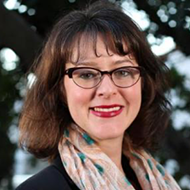 Colleen Lucey is Assistant Professor of Russian and Slavic Studies at the University of Arizona. A specialist in Russian literature and visual culture of the nineteenth century, Dr. Lucey teaches and publishes on gender and sexuality in the novel, the “woman question,” and the politicization of commercial sex in Russia from the Imperial period to today. Her forthcoming book, Love for Sale: Representing Prostitution in Imperial Russia (Cornell University Press, 2021) examines how a variety of writers and artists used the theme of prostitution to tackle issues of public hygiene and the commodification of sex. As both Vice President of the Executive Council of AATSEEL and a member of the ACTR Board of Directors, Dr. Lucey has advocated for building diversity, equity, and inclusion in Russian and Slavic Studies. Currently she is working with Dr. Amarilis Lugo de Fabritz (Howard University) on building a national network of support for students of color interested in Russian, East European, and Eurasian Studies.
Colleen Lucey is Assistant Professor of Russian and Slavic Studies at the University of Arizona. A specialist in Russian literature and visual culture of the nineteenth century, Dr. Lucey teaches and publishes on gender and sexuality in the novel, the “woman question,” and the politicization of commercial sex in Russia from the Imperial period to today. Her forthcoming book, Love for Sale: Representing Prostitution in Imperial Russia (Cornell University Press, 2021) examines how a variety of writers and artists used the theme of prostitution to tackle issues of public hygiene and the commodification of sex. As both Vice President of the Executive Council of AATSEEL and a member of the ACTR Board of Directors, Dr. Lucey has advocated for building diversity, equity, and inclusion in Russian and Slavic Studies. Currently she is working with Dr. Amarilis Lugo de Fabritz (Howard University) on building a national network of support for students of color interested in Russian, East European, and Eurasian Studies.
 Kimberly St. Julian-Varnon is a Ph.D. student in History and Fontaine Fellow at the University of Pennsylvania. Kimberly's work examines how Black experience in the Soviet Union shaped Black identity, and how the presence of people of color shaped ideas and understandings of race, ethnicity, and nationality policy in the Soviet Union and post-Soviet space. Her recent public writing has appeared in Foreign Policy, Moscow Times, and Contingent Magazine and analyses the linkages of race, foreign policy, and culture in the United States, Russia, and Ukraine.
Kimberly St. Julian-Varnon is a Ph.D. student in History and Fontaine Fellow at the University of Pennsylvania. Kimberly's work examines how Black experience in the Soviet Union shaped Black identity, and how the presence of people of color shaped ideas and understandings of race, ethnicity, and nationality policy in the Soviet Union and post-Soviet space. Her recent public writing has appeared in Foreign Policy, Moscow Times, and Contingent Magazine and analyses the linkages of race, foreign policy, and culture in the United States, Russia, and Ukraine.
 Marius Taba has a long track record of community activism at the local and international levels. In the last 15 years, he has initiated and overseen projects on policy development and the advancement of inclusive education reforms for Roma in more than 15 countries in Central and Eastern Europe. He was a research and advocacy manager for the Roma Education Fund where he undertook applied research, grants monitoring schemes, and impact evaluation on school inclusiveness and desegregation. He holds a Ph.D. in Sociology from the University of Bucharest and is currently a research fellow at Corvinus University, Budapest. Previously, Dr. Taba held visiting lecturing posts at McDaniel College Eötvös Loránd University, Central European University and also taught in the Romani Studies program at the National University of Political Science and Public Administration, Bucharest.
Marius Taba has a long track record of community activism at the local and international levels. In the last 15 years, he has initiated and overseen projects on policy development and the advancement of inclusive education reforms for Roma in more than 15 countries in Central and Eastern Europe. He was a research and advocacy manager for the Roma Education Fund where he undertook applied research, grants monitoring schemes, and impact evaluation on school inclusiveness and desegregation. He holds a Ph.D. in Sociology from the University of Bucharest and is currently a research fellow at Corvinus University, Budapest. Previously, Dr. Taba held visiting lecturing posts at McDaniel College Eötvös Loránd University, Central European University and also taught in the Romani Studies program at the National University of Political Science and Public Administration, Bucharest.
SPRING 2021 SESSIONS
SPONSORS:
Center for East European and Russian/Eurasian Studies, University of Chicago
Center for Russia, East Europe, and Central Asia, University of Wisconsin-Madison
Center for Russian, East European, and Eurasian Studies, University of Michigan
Center for Russian, East European, and Eurasian Studies, University of Texas at Austin
Center for Slavic and East European Studies, Ohio State University
Davis Center for Russian and Eurasian Studies, Harvard University
Inner Asian and Uralic National Resource Center, Indiana University, Bloomington
Institute of Slavic, East European, and Eurasian Studies, University of California, Berkeley
Russian, East European, and Eurasian Center, University of Illinois, Urbana-Champaign
Russian and East European Institute, Indiana University, Bloomington

